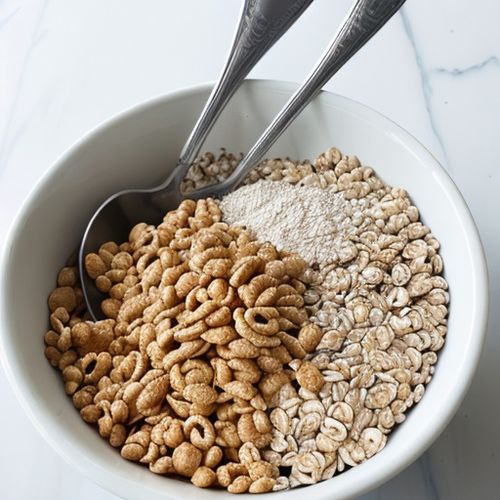Cutting down on carbs seems like a straightforward route to weight loss. Ditch the roast potatoes, risotto, and pasta, and watch the pounds drop, right? While low-carb diets can be effective in the short term, they come with a host of considerations that can impact long-term health. Let’s delve into the intricacies of low-carb diets, their benefits, risks, and the sustainable alternatives that might offer a healthier path.
What is a Low-Carb Diet?
The typical diet consists of about 50% carbohydrates, with meals like porridge or toast for breakfast, a sandwich for lunch, oatcakes and fruit for snacks, and pasta or rice-based dishes for dinner. A low-carb diet significantly reduces this carbohydrate intake, aiming for between 10% (20-50g daily, very low) and 26% (less than 130g daily, low) of total calories from carbs.
Why Are Low-Carb Diets Effective?
Carbohydrates break down into sugar in the body, and starchy carbs like rice and pasta flood the bloodstream with glucose, causing a sharp insulin spike. This excess insulin can lead to insulin resistance, chronic inflammation, and fat storage, particularly visceral fat. By reducing carb intake, insulin spikes are minimized, and the body shifts into fat-burning mode. Additionally, low-carb diets often involve higher protein and fat intake, which can reduce hunger and eliminate calorie-dense junk food, leading to weight loss.
Types of Low-Carb Diets
1. Atkins Diet: This diet starts with a very low carb intake of 20g daily, focusing on high fat and protein with low-carb vegetables. Over time, more vegetables, nuts, and fruits are gradually reintroduced. However, critics argue that it often leads to overconsumption of unhealthy fats like bacon and cream.
2. Keto Diet: The keto diet restricts carbs to under 50g daily, with moderate protein and high fat intake to induce ketosis, where the body burns fat instead of glucose. While it can be effective for weight loss and managing epilepsy in children, it comes with risks like "keto flu" and long-term issues such as fatty liver disease and vitamin deficiencies.
3. Dukan Diet: This diet begins with a week of unlimited lean protein and oat bran, followed by gradual reintroduction of non-starchy vegetables and eventually some carbs and fats. It is highly restrictive and often criticized for its emphasis on processed meats.
Is a Low-Carb Diet Healthy?
While refined carbohydrates like white rice and pasta can cause blood sugar spikes and increase the risk of chronic diseases, not all carbs are created equal. Whole grains, fruits, vegetables, and legumes are rich in fiber and essential nutrients. Dr. Federica Amati, a clinical nutritionist, emphasizes that the issue lies in the proportion of these foods in the diet rather than their presence. A healthy low-carb diet should prioritize nutrient-dense foods and include plenty of vegetables, fruits, and whole grains.
Is a Low-Carb Diet Sustainable?
Low-carb diets can yield dramatic weight loss, but sustainability is a significant challenge. Restrictive diets like Atkins and keto often lead to yo-yo dieting, where rapid weight loss is followed by weight regain. Dr. Amati notes that while rapid weight loss can be beneficial for those with severe obesity, it is not ideal for most people. Sustainable weight loss requires a balanced approach that includes a variety of nutrient-rich foods.
Associated Health Risks
Low-carb diets that favor high amounts of saturated fat can raise LDL cholesterol levels, increasing the risk of heart disease. By eliminating legumes, beans, and most fruits, these diets also remove vital micronutrients and fiber. Dr. Amati warns against overconsumption of unhealthy fats like cream and butter, which can lead to increased LDL and triglyceride levels.
The Mediterranean Diet: A Sustainable Alternative
The Mediterranean diet offers a balanced and sustainable approach to low-carb eating. It emphasizes whole grains, fruits, vegetables, legumes, nuts, seeds, and healthy fats like olive oil. Moderate amounts of poultry, eggs, yogurt, and cheese are included, while red meat and red wine are limited. Processed meats, added sugars, and ultra-processed foods are consumed only occasionally.
A typical Mediterranean day might include:
- Breakfast: Shakshuka (eggs poached in tomato and red pepper sauce)
- Lunch: Tuscan ribollita with barley (a vegetable and bean soup with Parmesan)
- Dinner: Pesce all’acqua pazza (white fish in tomato sauce with basil and extra-virgin olive oil) and sourdough bread
- Snack: Full-fat Greek yogurt with kefir, berries, and nuts
This diet has been shown to prevent and reverse non-alcoholic fatty liver disease (NAFLD) and Type 2 diabetes, lower cancer and heart disease risk, and support long-term health. Dr. Amati recommends focusing on unrefined whole grains with a low glycemic index, such as buckwheat, barley, and spelt, and incorporating probiotic fermented foods like yogurt and kefir to support gut health.
While low-carb diets can be effective for short-term weight loss, they come with potential health risks and sustainability challenges. A balanced approach, like the Mediterranean diet, offers a healthier and more sustainable alternative. By focusing on whole, nutrient-dense foods and maintaining a variety of fruits, vegetables, and whole grains, you can achieve long-term health benefits without the pitfalls of restrictive diets. In the end, a balanced and varied diet is the key to a healthy and fulfilling lifestyle.

By Victoria Gonzalez/May 12, 2025

By Samuel Cooper/May 12, 2025

By Eric Ward/May 12, 2025

By Ryan Martin/May 10, 2025

By Thomas Roberts/May 10, 2025

By Laura Wilson/May 10, 2025

By Christopher Harris/May 10, 2025

By Samuel Cooper/May 10, 2025

By Megan Clark/May 10, 2025

By Olivia Reed/May 10, 2025

By Natalie Campbell/May 10, 2025

By Sophia Lewis/May 10, 2025

By George Bailey/May 10, 2025

By Eric Ward/May 10, 2025

By Daniel Scott/May 10, 2025

By George Bailey/May 10, 2025

By Elizabeth Taylor/May 10, 2025

By Natalie Campbell/May 10, 2025

By Emily Johnson/May 10, 2025

By Elizabeth Taylor/May 10, 2025